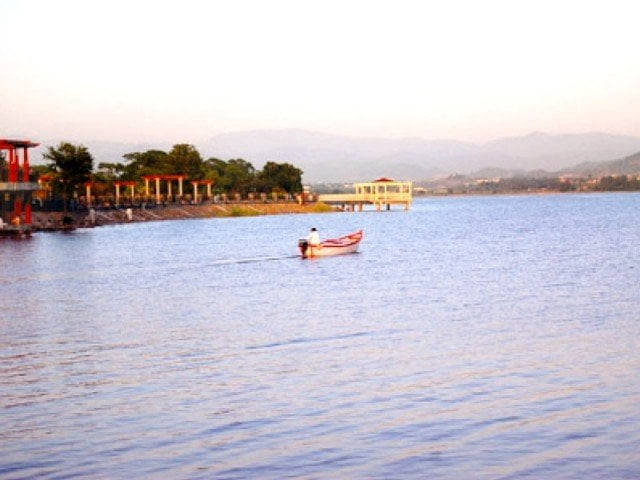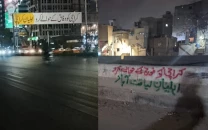In Rawal Lake : Residents complain about growing pollution
City administration waiting on govt to release funds for treatment plants

PHOTO: EXPRESS
Rawal Lake is among the main sources of drinking water for Rawalpindi. However, the lake also receives the bulk of untreated sewage and other wastewater from the fast growing population located on the banks of the lake including in Bara Kahu, Bari Imam, Shaadra, Bani Gala, Quaid-i-Azam University and other adjoining areas.
SC seeks details of allotments, buildings in Rawal Lake area
Despite the urgency of a sewage treatment plant, the authorities and government departments have been entangled in the familiar web of bureaucratic red tape. Earlier in 2012, on the directions of the Supreme Court, the Rawal Lake Monitoring Committee had asked a private firm to identify the causes of pollution and propose a solution. The consultancy firm, Usman and Company, had proposed five sites where sewage treatment plants should be built.
In 2012, the firm had estimated that the plants would cost around Rs2.4 billion to build. The ICT Administration subsequently submitted a PC-1 to the finance ministry for final approval. The concept paper was ultimately sent to planning division, however, progress on the project stalled with apex planners distracted with other projects and their approval, required to get the project off the ground, remained pending. Later in December 2015 an independent commission constituted by Islamabad High Court had recommended setting up multiple sewage treatment plants in the catchment areas of the Rawal Lake. But over 18 months later, little to no action has been taken to build five sewage treatment plants and a sewage network along the lake.
The project, jointly prepared by the Capital Development Authority (CDA), the Islamabad Capital Territory (ICT) and the Cabinet Division, had aimed to ensure the supply of clean drinking water to the residents of the capital by building five decentralised sewage treatment plants in the Rawal Lake upstream at an estimated cost of Rs2.258 billion. Funding to pay for the plants, have yet to be released by the Planning Commission, delaying construction of the decentralised sewage treatment plants.
As tube wells go dry, Pindi sweats its aqua needs
The delay in funds came even as the IHC’s Environmental Commission in October 2015 had recommended urgent approval of funds for the project from the Ministry of Planning and Development Reforms. “Many years ago, the Rawal Lake had the capacity to store between 37,000 and 47,000 acre-feet of water, and its water was crystal clear, but now its storage capacity has reduced due to the continuous flow of silt and other sewage into the lake. Its colour, too, had turned slightly brownish owing to the influx of polluted material,” said Saeed Malik, who lives in Bani Gala near the Rawal Lake.
Published in The Express Tribune, June 26th, 2017.


















COMMENTS
Comments are moderated and generally will be posted if they are on-topic and not abusive.
For more information, please see our Comments FAQ